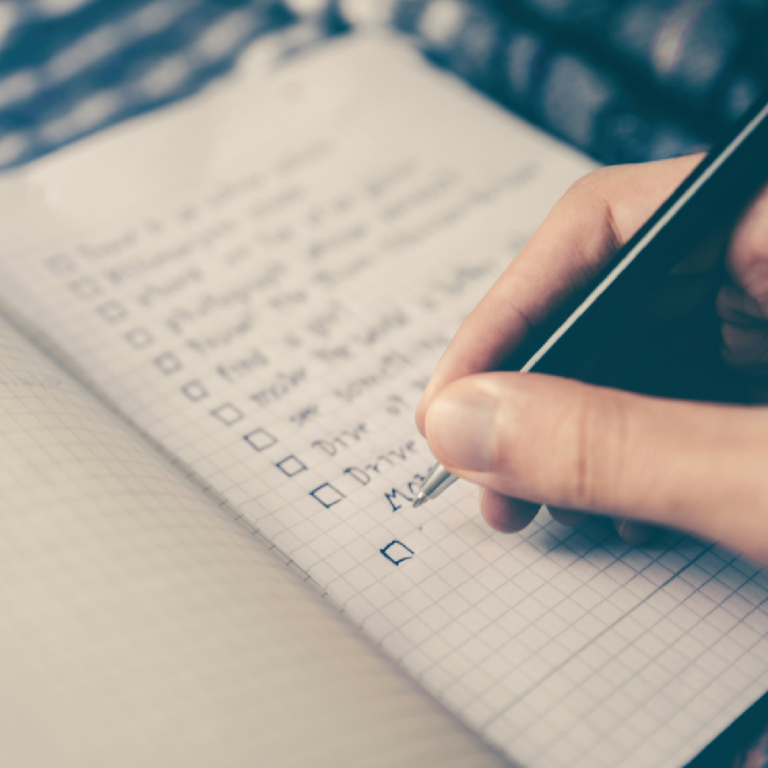Tracking Your Calories But STILL Gaining Weight?
As I have mentioned countless times and as I am sure you have heard all over the internet, the only way to lose weight is to be in a caloric deficit. It doesn’t matter what diet you are following, whether you eat zero grams of carbs in a year or nothing but carbs, if the amount of calories that you are consuming is higher than the number of calories you are burning then you are going to gain weight. The theory is simple and undeniable. Although the formula is simple in theory (calories in – calories out), calculating these variables is incredibly complex and dynamic. For examples of the dynamic nature of calories in and especially calories out, check out my previous post regarding the basis of metabolism.
“I am burning more calories than I am eating, but somehow I am still gaining weight!”. This is something I hear from all sorts of people on a daily basis. The unfortunate truth of the matter is that there are two options here – 1. You are defying the laws of thermodynamics or 2. your math isn’t adding up. I’m going to confidently go with the latter. The good news for the people that are suffering from this is that it isn’t your fault. You are tracking your calories, you are keeping up with calories burned, and you are doing everything you can do to make it work with the tools you are given. Unfortunately, the most commonly used tools are extremely misleading, and not many people know this. There are several mistakes I see commonly made by people that are easily fixed with a little more background knowledge and a little extra work on the side. The main reasons people ‘burn more than they eat but still gain weight’ is because 1. They are not burning near what they think they are and 2. They are eating much more than they think they are. I’ll give a little more explanation below.
You are not burning as many calories as you think you are. As mentioned in a previous post, there are several factors that go into how many calories you are burning throughout the day – exercise-induced calories, non-exercise activity (NEAT), thermic effect of food, resting metabolic rate, hormonal limitations, etc. Each of these things varies considerably from person to person, even people with the same height/weight/age. The most common estimates of total daily energy expenditure, TDEE, are calculated by some equation derived from normative data that is a function of a person’s height, weight & age such as the Harris-Benedict equation. Although these variables do play a considerable role, there are several other variables as mentioned above that go into the equation so the estimate from these equations should serve as nothing but a mere starting point. If these variables sound familiar to you, it is because these are the variables you input on your fancy fitness tracker on your wrist that everyone wears nowadays (I also wear an Apple watch and I love it, so I am not throwing shade at anyone). The only reason I bring this up is that this is the main source of ‘calories burned’ that people use to base their caloric deficit these days due to its convenience. Most of the food tracker apps even let you pair your Apple Watch with it now so that it can use that value as a variable in your daily caloric requirement equation. Although convenient, this value is incredibly misleading. As stated several times, your watch uses a few simple variables (along with some accelerometer data, I’d imagine) to give you some estimate of your daily caloric burn when in reality, the equation is much more complex. Although I have not conducted my own studies (yet, at least), according to some incredibly credible sources such as Dr. Layne Norton, fitness trackers tend to overestimate total calories by ~20-90% on average. That is an INCREDIBLE difference and one that would absolutely take you from a 500-calorie deficit to a 500-calorie surplus in a heartbeat. The one positive thing about these fitness trackers is that although they are not very accurate, they have been shown to be fairly precise. If you are unfamiliar with the difference between accuracy and precision, essentially accuracy refers to how close it is to the actual value whereas precision refers to how consistent it calculates the outcome on a daily basis. This means that although the amount of calories burned is not accurate, the comparative nature of a day’s total can be useful. For example, if your watch says you burned 2000 calories one day, but 4000 calories the next, the odds are you probably did burn twice as many calories that day – just not 4000. If you are using a wearable fitness tracker as your complete source of ‘calories burned’ to determine your caloric balance, you might want to think again.
The other painful truth is that you are eating more than you think you are. The first reason that this is true, is that the nutrient labels on food are not extremely precise. In fact, most people don’t know this but the FDA only requires that the nutrition ‘facts’ on food labels be within a 20% error. Though this could mean that the food you are eating is actually 20% fewer calories than it says, I find that highly unlikely from a marketing standpoint from the company selling the food. This fact alone could lead you to be eating 100+ extra calories per meal than you think. The second reason this is true is that people don’t know how to correctly count their calories and/or understand the extent of not including certain foods. From experience and from listening to a lot of influential people in the fitness and nutrition space, I can confidently say that most people that count their calories overshoot their protein intake and undershoot their calories. When most people eat a meal, they tend to enter a convenient amount of protein, such as 8 oz of chicken or 6 oz of fish – but most people don’t realize how much 8 ounces of chicken is. Another protein-related mistake that a lot of people make is that they choose very poor, non-protein-dense sources of protein. For example, and I used to be extremely guilty of this, people eat things like peanut butter or ‘protein’ bars because they are marketed to have a lot of protein. They may have more protein than other foods, but they also have a lot of other unaccounted-for calories in them from fats and carbohydrates. Although overestimating protein is a common problem, underestimating calories is the biggest issue seen in people that think they are in a caloric deficit. When people go throughout the day and log their food, there are quite often a lot of unaccounted-for calories. For example, people don’t consider the amount of oils used in preparing their food & oils are extremely calorie dense. Another example is that people will often cook vegetables with butter and other sauces, but only put that they ate 200g of green beans in their tracker – completely omitting the 1/2 bar of butter that is melted on top of it. When people go out to restaurants and eat chicken, mashed potatoes, and green beans – they tend to put in for example 6 ounces of chicken, 200g of mashed potatoes, and 100g of green beans… but they fail to account for all of the sauces, seasonings, and condiments used to make their food taste better than when they make it at home. Another reason for calorie underestimation is unaccounted for snacking throughout the day. People will grab a handful of almonds or a banana with some peanut butter and not worry about it because it was a ‘small snack’, but they forget that when they grab a handful of almonds three times a day, that is several hundred calories accumulated. One last major contributor to calorie underestimation is liquid calories – sodas, sweet tea, sports drinks, fancy coffees, etc. Sugar-filled drinks are one of the most non-satiating items that one can consume, yet their calories add up even faster than most foods. People don’t understand the number of calories added up throughout the week with a few unaccounted-for sodas sprinkled in.
Just to drive the point home, let’s throw some numbers into the mix. Say that your fancy watch tells you that you burn 2,500 calories a day. You decide you are going to eat 2,000 calories a day in order to lose roughly 1 lb per week because one lb of fat is ~ 3,500 calories. Solid plan – in theory. Now, let’s assume you are lucky, and you have a pretty accurate fitness tracker, and it only overshoots by 20% so you are actually burning ~ 2,100 calories. When you are counting your calories, let’s give you the benefit of the doubt and say you are accounting for the oils being used and other empty calories that are often forgotten – but throughout each day you sneak ~ 2 handfuls of almonds, a banana and half of a coke just to get rid of your caffeine headache. That is seemingly harmless because almonds and banana are healthy and half of a bottle of Coke is like 3 sips, but in reality, that is an additional ~ 500 calories. So, instead of being in a caloric deficit of 500 calories (2500 burned – 2000 consumed), you blinked and are now in a caloric surplus of 400 calories (2500 consumed – 2100 burned). Instead of losing 1 lb per week, you are gaining 1 lb per week. In this example, it is assumed that your fitness tracker is fairly accurate and you do a very good job on your diet with a few seemingly harmless and healthy-ish slip-ups. In most people’s situations, this extremely generous. Most people would say that if they ‘cheated’ on their diet with some almonds, a banana and a few sips of coke, they had a pretty solid day. This is not even including the people that diet fairly strictly throughout the week and sort of do whatever they want on the weekend. Losing weight is a long-term game. Your body doesn’t care that you were in a deficit for 5 days of the week. If you were in a 2500 calorie deficit for 5 days, and then go into a 4000-calorie surplus during the weekend (MUCH easier than you think), all your body knows is that you were in a 1500 calorie surplus for the week. You behaved a majority of the time, but the bad days barked the loudest. Remember, weight loss is a long term game.
Although some may feel like I am attacking people in this post, I am absolutely not. Anyone who is actively trying to account for their calories and put themselves in a caloric deficit is obviously trying to better themselves and I love that. Unfortunately, oftentimes people find themselves in a situation where they genuinely believe that they are burning more than they are eating and not seeing results and they get extremely discouraged and think that it is impossible and that they are just doomed. The point of this post is to make people realize that it is absolutely possible and that they are not doomed, just that there are some small and easily overlooked mistakes that may be hurting their results without them knowing. Very small things such as being somewhat lackadaisical on the weekends and sneaking in a few unaccounted-for snacks here and there go a long way. Just like good habits, bad habits are also atomic over time.
Now that you have seen all of the potential mishaps when it comes to dieting and the danger in blindly trusting the convenient tools at your fingertips, let’s briefly discuss the only true way to ensure that you are in a deficit, or a surplus. In all reality, the absolute only way to truly set yourself up in a desired caloric deficit (or surplus) starts with being real with yourself about what you are eating, and figuring out how many calories you actually burn in a day. The only way to do this is to 1. genuinely track all of your foods and drinks – weigh out your food, account for the oils, account for the snacks, etc. and 2. track your weight on a scale every day. If you want to truly know how much you are eating, include all of the oils being used, add in the amount of sauce being used, measure out two tbsp of pb rather than calling a spoon full ‘close enough’, log in your snacks, count your nuts, and learn to cook. When eating out, it is nearly impossible to know what all is going into the food being made. Yeah, you may see 6 ounces of chicken, 200 grams of baked potato and some greens, but what you don’t clearly see is the oils and sauces used, the butter spread out on top, the excess ingredients used, etc. The only way to know everything that you are consuming, is if you made the meal yourself. If you want to dial it in, learn to cook. Now for the second part, figuring out how much calories you burn on a daily basis. Obviously, this varies on a day-to-day basis, but most people over time on average burn close to the same amount. The first step in figuring this out is buying a weight scale. Weigh yourself first thing in the morning, every single morning, before you eat or drink anything. It is important to make sure that you do this not only every day, but at the same time and conditions every day. The reason for this is that as most people will notice, your weight fluctuates greatly day-to-day and even during the day. The things you eat, the amount of water you drink, the relative time to exercise, the amount of sodium you had that day, all of these things influence your weight during the day. It is not uncommon to weigh 5+ lbs different at night than you do in the morning. For this reason, if you weigh yourselves inconsistently and at different times of the day, there are A LOT of variables that can go into the difference in readings. To eliminate the fluctuation as much as you can, remove the variables. By weighing yourself every day and looking at the long-term weight behavior and weighing at the same time in the same conditions every day, you are eliminating as many variables as you can. Even then there are going to be day-to-day fluctuations. For this reason, it is important to look at the trend of weekly averages, rather than daily weights. Comparing weekly averages further removes the slight variability and noise seen on a day-to-day basis. As mentioned, weight loss is a long-term game. Once you get used to accurately counting your calories and recording your weight, pay attention to the relationship between the two. Keep your average calories consistent for a few weeks and see how the weight responds. If you are gaining weight, drop the calories if you’d like to lose weight. If you are losing weight, increase the calories if you want to gain weight. If what is happening is what you want, leave it be. After a few weeks, your weight loss progress will begin to plateau. This is because either your hormones are adapting and/or your total daily energy expenditure (TDEE) is decreasing with your decrease in weight. When these plateaus happen, it is time to reevaluate your calorie count. If you want to continue to lose weight, drop the calories. If you want to continue to gain weight, increase the calories. You need to do this self-reevaluation every month or two to make sure you are not prolonging your plateau. After a few plateaus or an extreme decrease in motivation and/or mental health, it may be important to hold your maintenance calories for a little while. Your maintenance calories are the amount of calories needed to neither gain nor lose weight. This can be good for your mental state, and it could also be good if the plateaus are hormone related. As mentioned in a previous post, if you diet for a prolonged period of time, your hormones will start to shut down as a defense mechanism since its main priority is to survive. Living at your maintenance calories for a little while lets your body know that it’s not in danger and that it can start functioning regularly again. But.. to know your maintenance calories, you have to be aware of how many calories you are eating, and how many calories you are burning.
To summarize, you are not burning more calories than you are eating and still gaining weight. You are not defying the laws of thermodynamics. The odds is that you are that you are both eating more than you think, and burning less calories than you think. It is extremely easy to do both of these things, even when you are making a conscious effort not to. Although extremely convenient, blindly following the results given to you by your food tracking apps and your wearable fitness trackers may be the culprit of your failed weight loss journey. The point of this post was to point out the faults in these methods and to explain the only real fool proof way to know that you are in your desired caloric surplus or deficit. If you are one of those people that are ‘burning more calories than you consume, but are still gaining weight’, it may be a time to take a look at a few things mentioned in this post.


